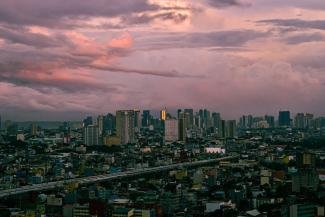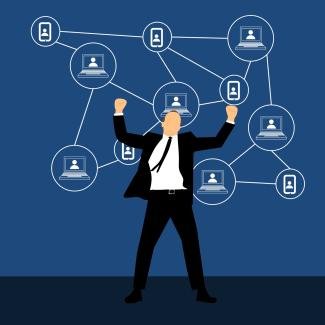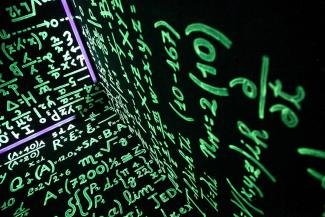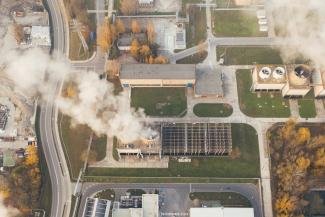In an era where information is at our fingertips, nearly half of the world's population remains offline, struggling to reap the benefits of the digital revolution. The digital divide refers to the growing gap between those who have easy access to digital technologies and the internet and those who do not. This disparity not only hinders individuals' ability to participate in the modern economy but also exacerbates existing social inequalities. This blog explores the multifaceted nature of the digital divide, examining its impact on education and employment, the role of government and private sector initiatives in bridging the gap, successful case studies from around the world, and future technologies that promise to democratize access to digital resources. We will delve into how the digital divide affects educational and job opportunities, the significant role of policy and private sector contributions, successful community interventions, and the promising future technologies aimed at bridging this gap.
By Elvin B Catantan, 6 June, 2024
Climate change poses a significant threat to the Philippines, a country highly vulnerable to natural disasters such as typhoons, floods, and rising sea levels. These climatic changes have profound impacts on the nation's ecosystems, agriculture, and communities, demanding urgent and effective adaptation strategies. In this context, information and communication technology (ICT) emerges as a crucial tool in enhancing the Philippines' resilience to climate change. By harnessing the power of ICT, the country can improve disaster preparedness, enhance agricultural productivity, and empower local communities. This blog explores the intersection of climate change adaptation and ICT in the Philippines, examining current impacts, key initiatives, and the challenges faced in integrating technology into adaptive strategies. Ultimately, it aims to demonstrate how ICT can serve as a catalyst for sustainable development and climate resilience in the Philippines.
By Jenny Azoncion, 6 June, 2024
In an era defined by rapid technological advancement and global connectivity, the evolution of communication systems stands at the forefront of innovation. From the earliest forms of human interaction to the digital age of instant messaging and video conferencing, communication has continually adapted to meet the needs of an ever-changing society. However, as we look to the future, the landscape of communication is undergoing a transformative shift, driven by emerging technologies and changing user behaviors.
This blog explores the trajectory of communication systems, examining current trends and predicting future developments that will shape how we connect, collaborate, and communicate in the years to come. From the integration of artificial intelligence to the proliferation of 5G networks and the Internet of Things (IoT), the convergence of these technologies promises to revolutionize the way information is shared and relationships are formed.
By Patrick E Bautista, 5 June, 2024
The Internet of Things (IoT) stands as a beacon of innovation, promising to revolutionize the way we interact with the world around us. From smart homes to interconnected wearable devices, the integration of IoT technology into our daily lives offers unparalleled convenience and efficiency. However, lurking beneath the surface of this convenience lies a complex web of privacy concerns, challenging us to confront the trade-offs between technological advancement and personal privacy.
This blog aims to explore the intricate interplay between convenience and privacy in the context of IoT adoption. We will delve into the ways in which IoT devices enhance our daily routines, the privacy implications associated with their widespread use, and the ethical considerations that arise from the collection and utilization of personal data. Furthermore, we will examine the role of regulatory frameworks, user empowerment, and education in navigating this delicate balance.
As we embark on this journey, it becomes evident that the impact of IoT on daily life extends far beyond mere convenience—it raises fundamental questions about the values we prioritize and the boundaries we are willing to set in an increasingly connected world. By critically examining these issues, we can hope to chart a path forward that maximizes the benefits of IoT while safeguarding our most precious asset: our privacy. So, let us embark on this exploration, guided by the imperative to strike a harmonious balance between the promises of technology and the protection of individual rights.
By Armando S Paraiso, 5 June, 2024
The Right to Be Forgotten (RTBF) is a legal concept that has gained prominence in recent years, particularly within the framework of the European Union's General Data Protection Regulation (GDPR). This law empowers individuals to request the removal of personal information from the internet, allowing them to protect their privacy and manage their digital footprint. The RTBF was introduced in response to growing concerns over the permanence of online data and the potential for personal information to be misused or become outdated.
At its core, the RTBF seeks to strike a balance between an individual's right to privacy and the public's right to access information. It addresses the challenges posed by the digital age, where information can be disseminated rapidly and remain accessible indefinitely. This discussion will delve into the legal framework of the RTBF, the criteria for data removal, the ethical and technological considerations, and the global influence of this law. Through this exploration, we will gain a comprehensive understanding of the RTBF, its implementation, and its impact on privacy and information rights.
By Elvin B Catantan, 5 June, 2024
For the Philippines, a nation rich in natural beauty yet faced with pressing environmental challenges, the integration of information and communication technology (ICT) emerges as a transformative force in fostering sustainability. As the world grapples with the urgent need for environmental conservation and climate action, the role of ICT in orchestrating innovative solutions has become increasingly paramount. In this blog, we delve into the symbiotic relationship between Philippine ICT and environmental sustainability efforts. Through examining current initiatives, exploring challenges and opportunities, and envisioning a collaborative future, we aim to uncover the potential of ICT to catalyze positive change in safeguarding the Philippines' natural heritage for generations to come.
By Jenny Azoncion, 5 June, 2024
Blockchain technology has emerged as a groundbreaking innovation with the potential to transform a wide array of industries in recent years. Originally designed as the underlying technology for cryptocurrencies like Bitcoin, blockchain's capabilities extend far beyond digital currencies. This decentralized, secure, and transparent system is poised to revolutionize industries by offering solutions that enhance efficiency, reduce costs, and improve security. As organizations across the globe explore the possibilities of blockchain, it is crucial to examine how this technology can impact various sectors, from finance and healthcare to supply chain management and real estate. This essay will delve into the transformative potential of blockchain technology, exploring its key applications, benefits, and the challenges it faces in achieving widespread adoption.
By Armando S Paraiso, 31 May, 2024
Quantum computing stands as a beacon of unprecedented potential. Its promise to revolutionize industries, solve complex problems, and propel humanity into a new era of innovation is captivating. Yet, amidst the excitement, lies a labyrinth of perils and challenges that demand careful navigation.
In this article, we embark on a journey to understand the tantalizing prospects and daunting risks associated with quantum computing. From the boundless possibilities of accelerated scientific discovery to the looming threats of cybersecurity breaches, we uncover the multifaceted landscape of quantum computing and its implications for society.
Let's delve into the realm of quantum algorithms and navigate the ethical, economic, and societal dimensions of this groundbreaking technology. We’ll explore the promise and perils of quantum computing, shedding light on the path towards a future where innovation harmonizes with responsibility.
By Armando S Paraiso, 31 May, 2024
Social media has become a cornerstone of modern communication, shaping how we interact with one another and perceive the world around us. Platforms like Facebook, Instagram, Twitter, and TikTok promise unprecedented connectivity, allowing us to bridge distances, share our lives, and build communities at the click of a button. Yet, amid this web of virtual interactions, a paradox emerges: as we become more digitally connected, many of us feel increasingly isolated.
By Armando S Paraiso, 26 May, 2024
In the battle against climate change, Information and Communication Technology (ICT) emerges as a key ally. From satellites monitoring our planet's health to smart grids optimizing energy use, ICT provides the tools we need to understand, mitigate, and adapt to climate change. It empowers us with real-time data, enhances communication and awareness, and supports sustainable practices. By leveraging ICT, we can make informed decisions, promote greener lifestyles, and better prepare for climate-related challenges.









